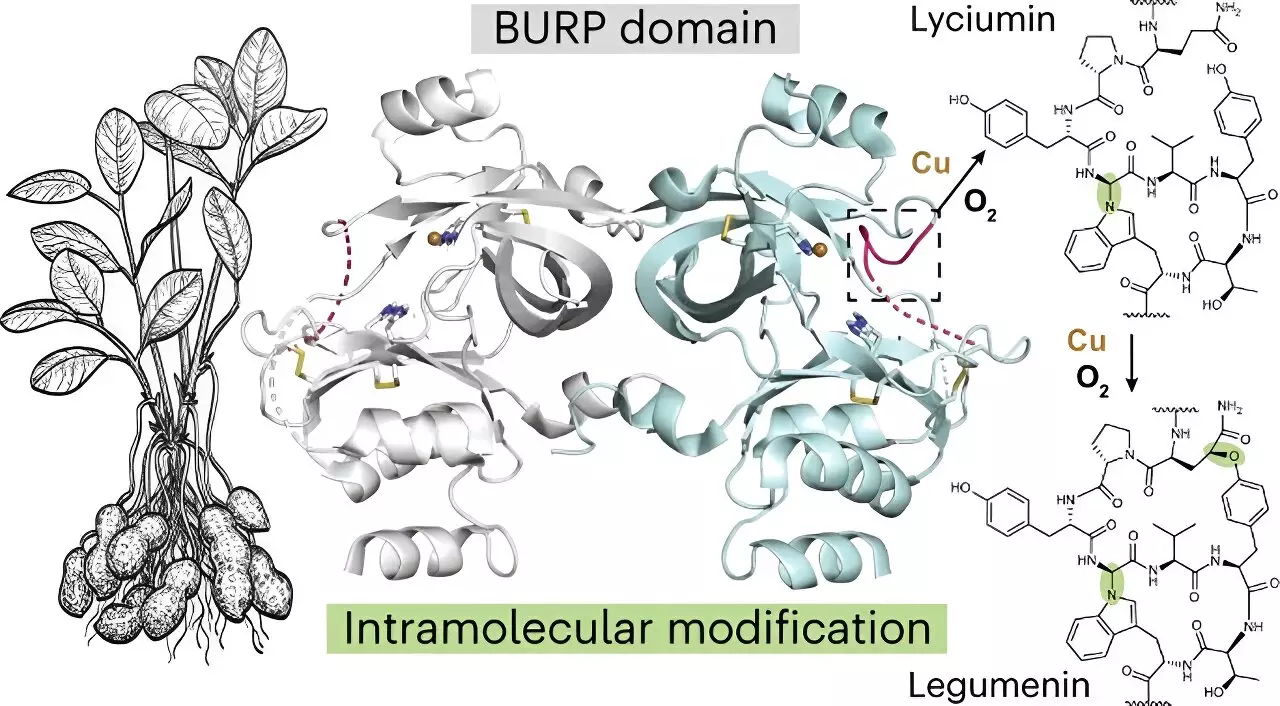In a groundbreaking study, researchers from the University of Michigan have made an extraordinary discovery in plant biochemistry. This new research sheds light on the ability of plants to form cyclic peptides, a class of molecules with immense potential as pharmaceutical agents. Led by Lisa Mydy and Roland Kersten from the U-M College of Pharmacy, this study has uncovered a mechanism by which plants generate these cyclic peptides. Published in the prestigious journal, Nature Chemical Biology, this research has opened up a new frontier in drug development.
Through their investigation, Mydy and her colleagues uncovered a “fascinating new protein fold” that facilitates the formation of cyclic peptides in plants. This innovative chemistry has never been observed before, making it an exceptional discovery. One of these cyclic peptides shows promise as an anti-cancer drug, which adds an extra layer of excitement and potential to this research. Mydy, a postdoctoral research fellow in the Department of Medicinal Chemistry, describes the discovery as “extremely exciting” and emphasizes that such breakthroughs are rare in the field.
The team of researchers focused on studying the biosynthesis of macrocyclic peptides found in plants, which have shown therapeutic potential. As part of their investigation, they examined the protein AhyBURP, a key component in this process. AhyBURP, a representative of the Unknown Seed Protein (USP)-type within the BURP-domain protein family, had minimal experimental information available. The only clue they had regarding its function was its reliance on copper for cyclizing a peptide.
To further their understanding, the research team employed advanced techniques such as X-ray crystallography and utilized the Advanced Photon Source at Argonne National Laboratory. These techniques allowed them to analyze the protein structures and gain critical insights into its functioning. During this process, they made a significant observation: unlike most cyclic peptides, which require additional enzymes to perform the cyclization chemistry, AhyBURP can accomplish this process within itself. This self-sufficient mechanism sets it apart from others, and the researchers are determined to understand how and why it occurs.
This groundbreaking discovery has emerged from the ongoing work in Roland Kersten’s lab, which focuses on the Natural Product Discovery Initiative at U-M. The lab is dedicated to identifying and researching new plant-based chemicals that have the potential to become drugs and treat various human diseases. The class of cyclic peptides, with their unique cyclization properties, has piqued the researchers’ interest. The stable and structured nature of these peptides increases their viability as potential drugs. Many drugs, including those derived from living organisms, possess cyclic structures that enable them to effectively bind to drug targets and remain intact within the body for the desired duration.
The research team’s discovery holds particular promise for cancer research. Kersten’s lab has previously isolated compounds created by the same protein family that exhibited suppression effects on lung cancer cells in laboratory tests. This finding fuels optimism that this breakthrough in plant biochemistry can lead to the development of effective anti-cancer agents. By understanding the intricate details of the protein’s structure and its interaction with peptides, copper, and oxygen, researchers can unveil the full potential of this discovery.
The University of Michigan researchers’ discovery of a new plant biochemistry and its ability to generate cyclic peptides marks a significant breakthrough in drug research. The “fascinating new protein fold” and its innovative chemistry provide a unique perspective on the formation of cyclic peptides. With the potential to develop promising pharmaceuticals, particularly anti-cancer agents, this research opens up exciting possibilities in the field of medicine. By continuing to unravel the mysteries behind this novel biochemistry, researchers aim to unlock the full potential of cyclic peptides and revolutionize drug discovery.


Leave a Reply